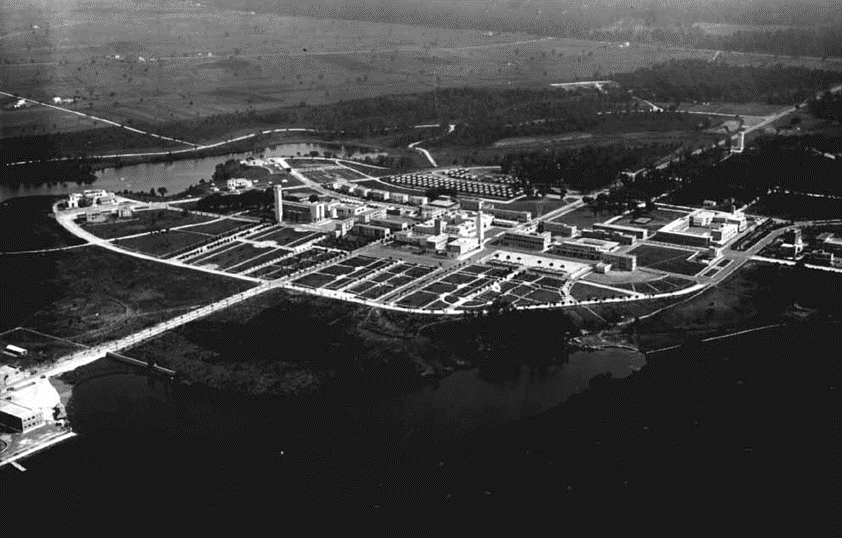Spatialized corporatism between town and countryside
Francesca Bonfante

Abstract
The relationship between town planning, rural landscape and architecture is examined within plan for construction of new towns in areas subject lo large-scale reclamation and agricultural development before WWII.
In the 1930s, these processes were largely based on theories about the fascist corporate state, namely a cohesive organization of socio-economic forces, whose recognition and classification underpinned the legal-political order. Corporatism purported a clear hierarchy between settlements, each bound for a given role, for which specific functions were to concentrate. Similarly, cultivations in the countryside were to specialise. In the Pontine Marshes, for example, Littoria was the provincial capital and Sabaudia a tourist destination, Aprilia an industrial centre and Pontinia an eminently rural town.
Shifting from the territorial level to the urban space, the hierarchy between farm, village and city comes into focus, along with architectural expressions hovering between classicism, rationalism or picturesque. In parallel, traditional rural architecture gained momentum, seen as a moral lesson for the definition of a new aesthetics.
Bonfante, F. Spatialized corporatism between town and countryside. Vol. 63, in Modernism, modernisation and the rural landscape. Proceedings of the MODSCAPERS_Conference 2018 & Baltic Landscape Forum, edited by S. Bell, A. Fisher, V. Capresi, M. E. Maia and C. Pallini, 77-86. Tartu: SHS Web of Conferences, 2019. http://dx.doi.org/10.1051%2Fshsconf%2F20196302003


